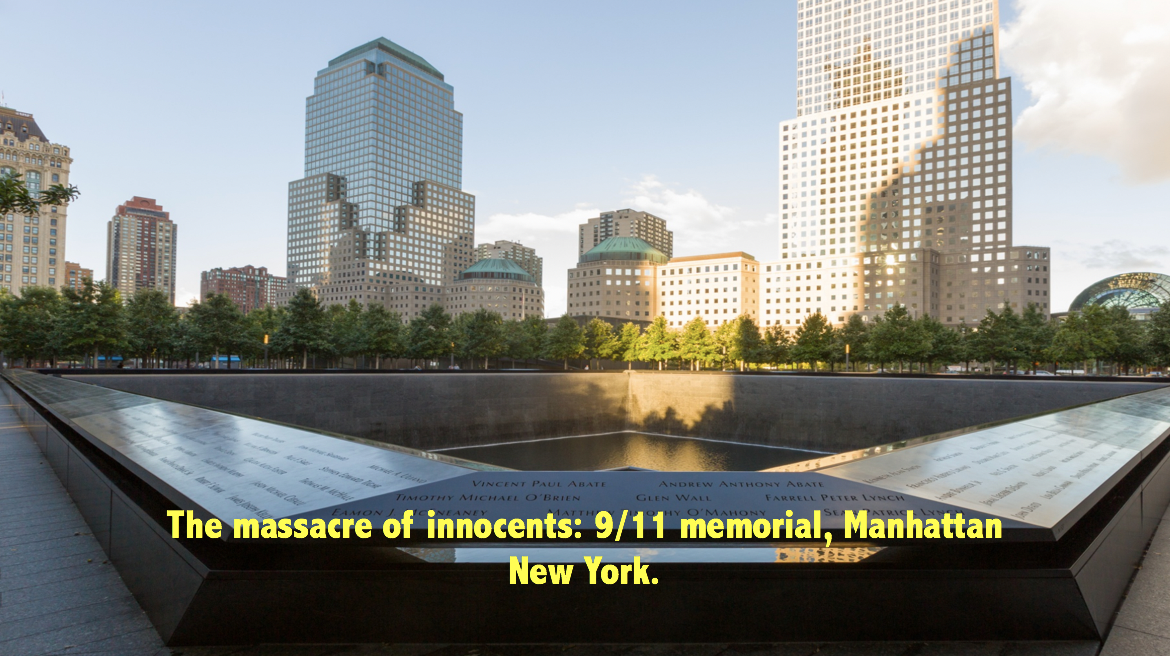
Not in my name
When a horrific event occurs in Europe, the U.S., or the Middle East, many Muslims feel a wave of fear. Not again… They fervently pray: please, let it not be a Muslim. As events unfold, social media displays gruesome images of dead bodies, blood-soaked streets, and panicked pedestrians fleeing for their lives. If the offender is revealed to be a Muslim, a deep sense of despair envelops the 2 billion Muslims. An old wound reopens as they confront the painful reality of innocent killings committed in the name of their peaceful faith—once again. With heavy hearts, Muslims observe the growing negative perceptions of Islam around the world, which starkly contrast with the values they cherish within their community.

Beyond the Denial
A colossal denial has shadowed the Muslim community for years. It was often easier to believe that such brutality were works of shadowy “hidden enemies” intending to tarnish Islam’s reputation—a plot to defame a peaceful faith of Islam—than to accept a more painful truth. While these debates cycled through the decades, the toll of innocent lives continued to rise, with Muslims themselves frequently being the primary victims of this radicalism. Today, the shield of skepticism is wearing thin. Those who once looked away from the growth of extremist fringes are now forced to confront a sobering reality: that some from within their own community have been responsible for these tragedies.
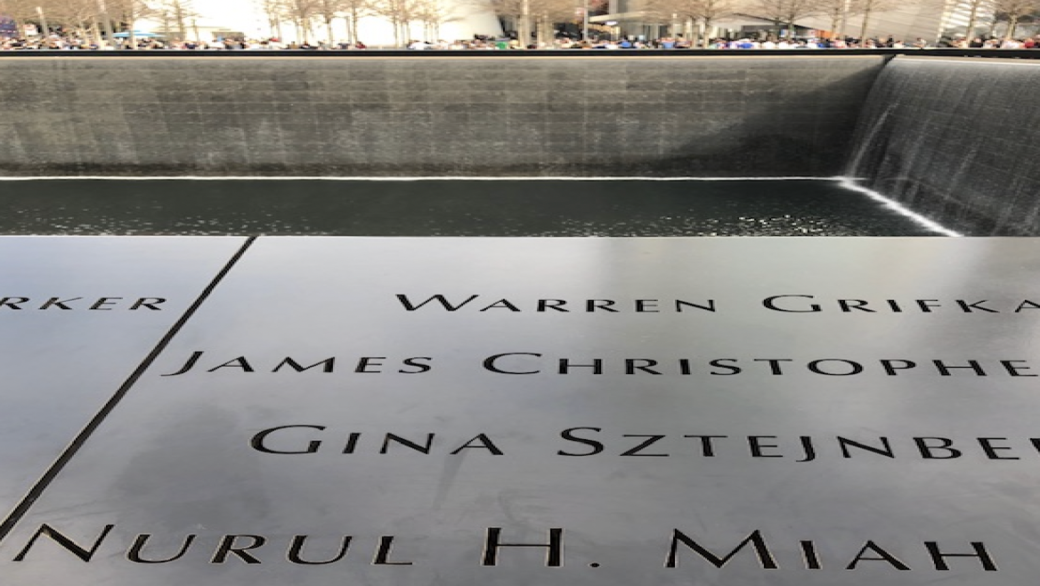
Along the water fountain, black stone tiles are engraved with 2977 names of those who perished on September 11, 2001.
More Muslims died on 9/11 than the number of terrorist hijackers.
USA Today, ” Yet 9/11 had more Muslim victims (about 60 of nearly 3,000 killed) than terrorist hijackers (19). They included an assistant bank vice president and a cook, a commodities trader and a waiter, an insurance executive, a security guard, and an IT guy. They included immigrants from all over: Sarah Khan, a cafeteria manager from Guyana; Syed Abdul Fatha, a copy machine operator from India; Zuhtu Ibis, a computer technician from Turkey. There was Michael Baksh, a Pakistani immigrant on his first day of work at the insurance firm Marsh & McLennan, and Abdoul Karim Traore, who had risen at 3 a.m. that day to deliver USA today before reporting to work as a cook at Windows on the World restaurant. Karamo Trerra, a computer tech, was ready to celebrate his fourth wedding anniversary on Sept. 12″ http://usatoday30.usatoday.com/news/natio /2010-09-03-1Amuslims911_CV_N.htm

The generations of autocracy
Approximately 20% of the 1.9 billion Muslims live in Arab countries, while the remaining 80% reside outside the Middle East. Autocratic leaders have perpetuated social and political inequalities that serve their interests for generations. In many nations, meaningful public discourse on political affairs is virtually nonexistent. Although some have parliamentary systems, true power resides in the hands of the rulers through their decrees. These dictators often exploit Islam for political gain, disregarding the fundamental Islamic principles of equality, justice, and representation—those who dare to speak out risk imprisonment or even death. In stark contrast to the Quranic vision of a just and equitable society, Muslim rulers frequently engage in corruption and injustice, effectively creating a virtual prison for their citizens.
No autocracy in Islam
Mr. Hossein Askari, a professor of International Business and International Affairs at George Washington University, stated, “We must emphasize that many countries that profess Islam and are labeled as Islamic are unjust, corrupt, and underdeveloped, and are, in fact, not truly ‘Islamic’ by any stretch of the imagination.” https://www.telegraph.co.uk/news/worldnews/europe/ireland/10888707/Ireland-leads-the-world-in-Islam

The pseudo democracies
There exists a spectrum of semi- and pseudo-democracies in many non-Arab Muslim countries, where political power is often concentrated in a single leader or party. This concentration of power obstructs accountability, as competing political activists are marginalized and silenced through false accusations and litigation. National elections produce a façade of democracy, frequently resulting in a virtual monarchy that is merely replaced by another in subsequent elections. Many leaders maintain their grip on power through rampant corruption and rigged elections, while political dissidents face imprisonment or disappear without a trace. The public administration and police force often become politicized and filled with government loyalists. The dictatorship of Sheikh Hasina, the recently purged autocratic ex-Prime Minister of Bangladesh, is a good example of this kind.

A case of duplicity and hypocrisy
The West’s stance on civil repression in Muslim countries is marked by duplicity and hypocrisy. While many Western leaders readily criticize Islam, connecting its teachings to violence and religious extremism, they maintain close alliances with the Muslim rulers responsible for ongoing human rights abuses. Citing national interest and geopolitical stability, Western governments continue to sell weapons, expand military bases in these regions, and conduct business as usual with these oppressive regimes. Their muted responses and half-hearted disapproval often appear to be mere public shows, rendering them complicit in the persistent injustices and the resulting extremism these conditions foster. http:// https://www.washingtonpost.com/outlook/2018/11/13/americas-hypocrisy-saudi-arabia/?noredirect=on&utm_term=.fc62f85900fb

No help to end the oppression
The harsh reality is that global powers often tolerate and manipulate autocratic Muslim rulers for financial and political gain, leaving millions of Muslims to endure immense suffering. The situation is even more dire in Palestinian refugee camps, where human rights have been systematically violated for generations. Few dare to confront the plight of Palestinians, who have lived for decades under the shadow of massive walls and Israeli army checkpoints. Despite their claims of moral high ground and commitment to human rights, the Western free world has failed to offer uprooted Palestinians any tangible hope of freedom for over seventy years. Meanwhile, millions have perished in Iraq over weapons of mass destruction that never existed while the basic premises of the war were based on falsehoods. From across Myanmar, Kashmir, and Syria, unrelenting oppression and violence persist, leaving countless lives shattered.
History of a People Desensitized
Muslim populations in many countries become desensitized to autocratic attitudes corruption and ruthlessness after witnessing tyranny, and corruption for generations. The distinction between fairness and criminality becomes incresingly blurred as corruption seeps into the fabric of society, transforming it into an accepted norm. This bleak outlook fosters desperation, which, in turn, nurtures extreme worldviews. Among the disaffected, a shared belief in a Western conspiracy against Muslims and Islam often emerges. This perception becomes fertile ground for extremist groups like ISIS and Al-Qaeda to recruit, preying on the vulnerability of young and naive individuals. The twisted ideologies of these groups mislead their followers into acts of terrorism, which unjustly cast Islam as a whole under suspicion and blame.
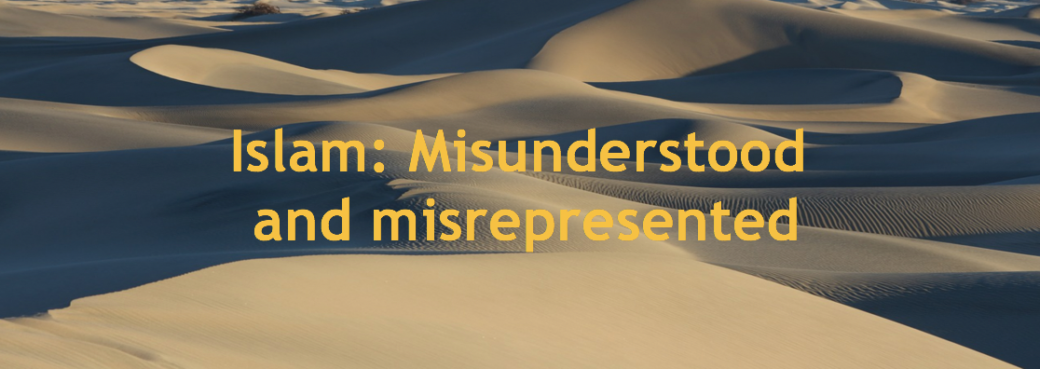
The battle cries
To the uninformed in the West, negative perceptions of Islam seem justified. Many believe that Islam is closely linked to violence, prompting questions about how followers of a supposedly peaceful religion can cause so much death and destruction. The harsh rhetoric from extremists, sound bites from politicians, and media portrayals can amplify this misunderstanding. Consequently, many Muslims find themselves feeling uncertain and confused, wondering if Islam allows for actions like suicide bombings and acts that can lead to harming innocent others. Lacking awareness of the Quran’s stance on these issues, they may be uncertain about what to think and how to respond.
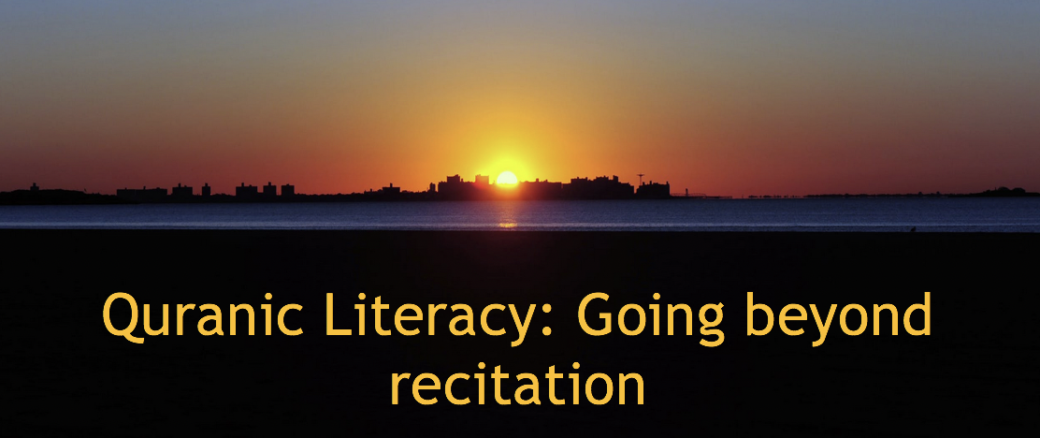
The reason why Al-Qaeda and ISIS can strike us far above their ideological weight, is the lack of Quranic literacy in the general Muslim population. It is vital to apply appropriate context to understand any religious scripture. The Quran needs to be studied and understood with the same standard to avoid misinterpretation.
The Quran: The most recited text
Muslims recite the Quran in Arabic in their daily prayers. As more than 80% of Muslims are non-Arab speaking, only a minority of Muslims understand the meaning of what they recite and even fewer know the context of revelation for the verses they are reciting. As a result, there is a wide spread ignorance of the Quranic vision of a just, balanced and peaceful society. While the traditional Islamic leaders and Imams dedicate their sermons in preaching about the ritual aspects of the religion, often they fall short in delivering the universal humanistic message of the Quran and Islam. As a result, many Muslims lack awareness of the Quranic standing on many issues such as human rights, social justice, sanctity of life, racism and the freedom to choose religion. Condemnation of terrorism from the Muslims: https://qpeace.net/?p=6688

Suicide is prohibited
Suicide bombing has become cliche for Muslim extremists. It is important to realize that wearing suicide vest and killing innocent people will not facilitate anyone’s path to heaven. As we can see that the Quran prohibits suicide as well as innocent killings in a clear and unambiguous manner.
The Quran 4:29. “And do not kill yourselves, surely God is most Merciful to you.”
The Quran 17:33 “Do not kill a soul which Allah has made sacred except by right of justice. Whoever is killed unjustly, We have given his heir authority, but let him not exceed the limits in taking life.”
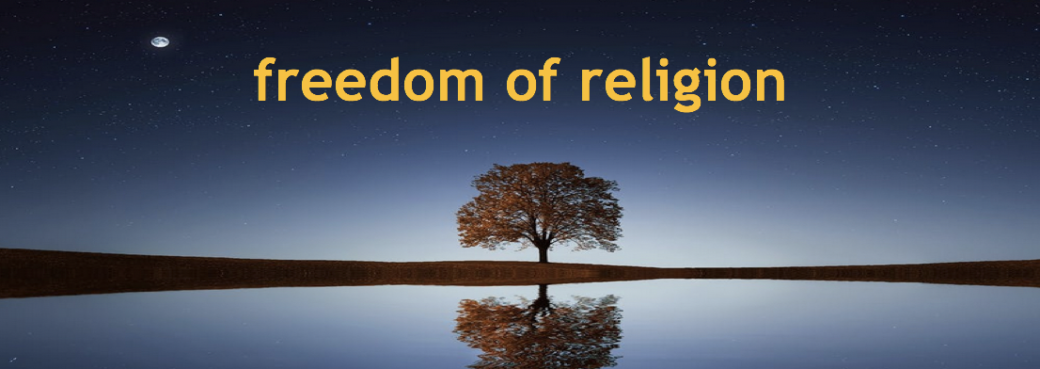
No compulsion in religion
The Quran teaches that religion is a matter of personal choice. Islam is voluntary submission to one God. Any attempt to coerce someone to become Muslim contradicts the Quranic teaching of entering Islam voluntarily. https://qpeace.net/?p=1382
Quran 2:256. “Let there be no compulsion in religion. Truth stands out clear from Error. whoever rejects evil and believes in Allah has grasped the most trustworthy hand-hold, that never breaks. God is all hearing and all knowing.”
Quran 18:29. “…Say, “The truth is from your Lord”: Let him who will believe, and let him who will, reject….”
Quran 10:99. “….Had your Lord willed, all the people on earth would have believed. So can you [Prophet] compel people to believe?”
Quran 42:48. “…But if they turn away (O Prophet, know that) We have not sent you to be their guardian: your duty is just to deliver the message.…”
Quran 88:21-22. ” So [Prophet] warn them: your only task is to give warning, you are not there to control them.”
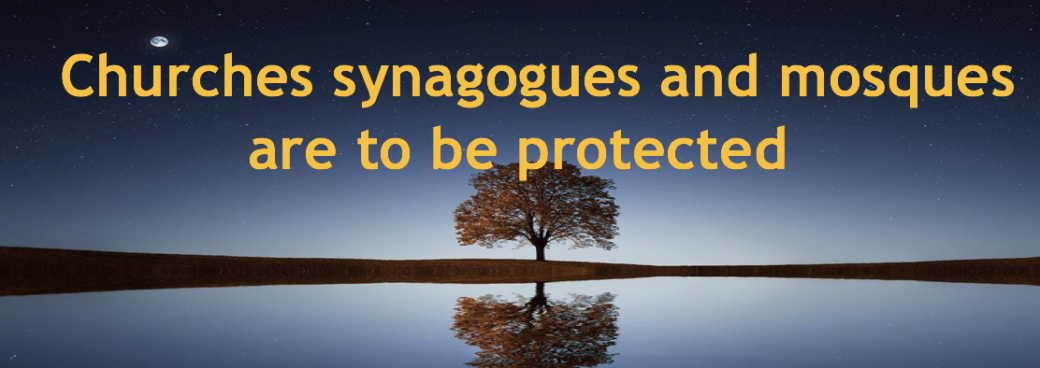
Protection of places of worship
As can be seen over the years, churches and mosques have been bombed across the globe. Consequently, many worshipers were killed in different parts of the globe, including in Pakistan, Egypt, Nigeria Indonesia and Sri Lanka, spurring reprisal killing of Muslims. Not surprisingly, Boko Haram, ISIS and others have claimed the responsibility for these destruction. In Indonesia a family of five became suicide bombers to destroy a church. Bombing the churches and believing that they were doing a service to the religion of Islam was dead wrong. The Quran 22:40 explains why. https://www.theguardian.com/world/2018/may/13/deaths-bomb-attacks-churches-indonesia-surabaya .
Quran 22:40. “…If Allah did not repel some people by means of others, many monasteries, churches, synagogues, and mosques, where Allah’s name is pronounced abundantly, would have been destroyed. Allah is sure to help those who help His cause. Allah is strong and mighty”
The Christians from Najran, stayed and prayed in prophet’s mosque
In the Quran, Allah revealed verses asserting the preservation of places of worship. After all those who bombed the churches, did not know, or did not care, that Allah wanted the places of worship to be protected, not destroyed. These perpetrators did not take the trouble to learn that the prophet (peace be on him) built a community in Medina where Jews, Christians, Muslims and nonbelievers lived together with freedom to practice their own faiths. This inclusiveness of different faiths was shown when the prophet Muhammad (peace be on him) let a group of visiting christian leaders from Najran stay nights in the holy mosque in Medina and also let them perform their worship there. To read about religious pluralism, please follow the link: https://qpeace.net/?p=3122
Muhammad (Peace be up on him) and the Christian monks of St. Catherine
Prophet Muhammad’s (peace be up on him) covenant with Christian monks of St. Catherine at Sinai says, “…..Should any Christian woman be married to a Muslim, such marriage must not take place except after her consent, and she must not be prevented from going to her church for prayer. Their churches must be honored and they must not be withheld from building churches or repairing convents….” https://en.wikipedia.org/wiki/Ashtiname_of_Muhammad)
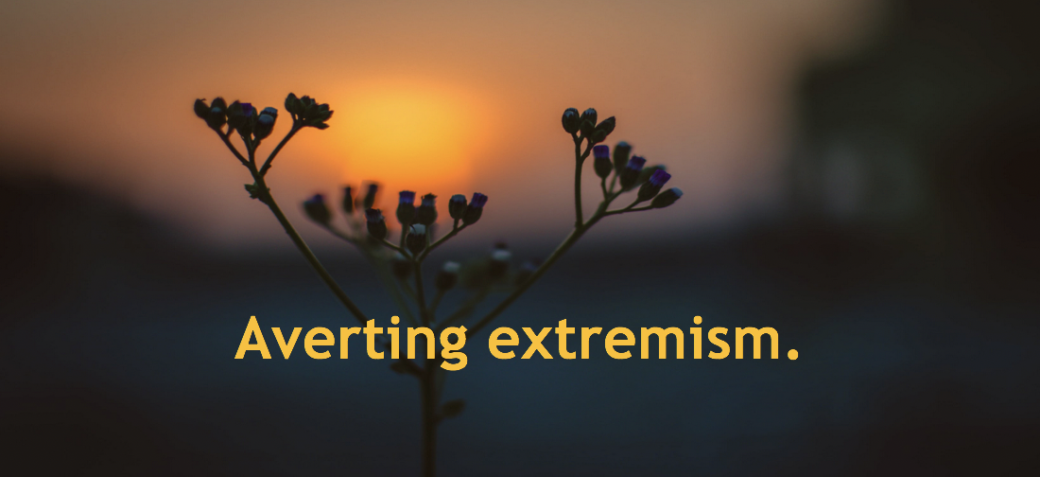
The people of the middle path
For Muslims, it is important to realize that the Quran identifies them as a people of balance and moderation. At this time of history, to avert Muslim extremism and to nurture moderation, Muslim world needs mass education to grasp the basic Islamic values of religious tolerance, sanctity of life, justice for all, honesty and transparency.
With this in mind, Muslim governments need to cultivate a culture where the governments make themselves accountable to the people. Firstly, they should allow people to participate in that process by allowing transparent and fair elections. On the other hand, the people must follow the peaceful path of dialogue, be forgiving to resolve differences and avoid resorting to violence with utmost restraint in the face of provocations. Muslims need to apply wisdom, patience, honesty and deliberation when faced with challenges.
Quran 2:143. “…Thus We have made of you a community justly balanced, that you might be witnesses over the nations, and the Messenger a witness over yourselves;…”
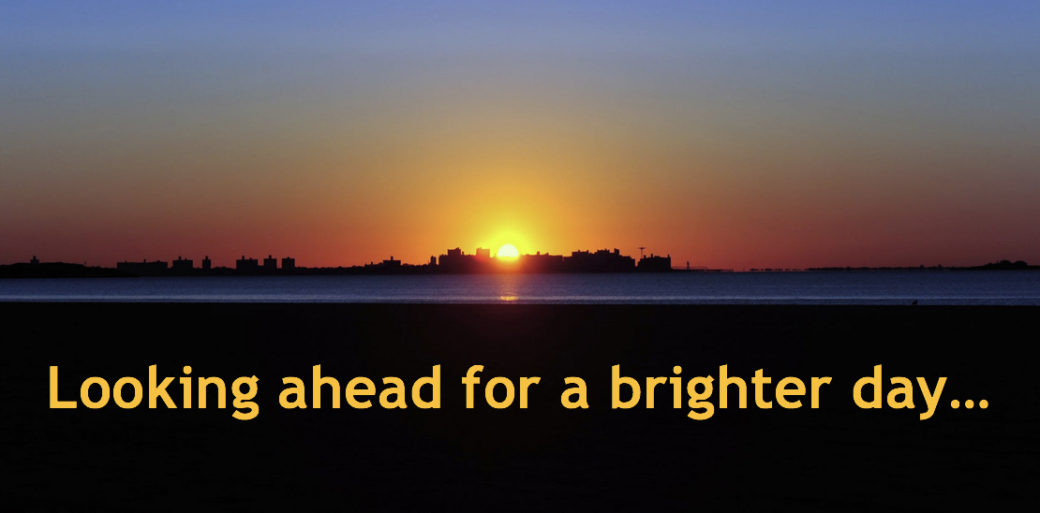
A Muslim golden age
Since after the death of prophet Muhammad (peace be on him), Muslims developed a new era of a Muslim civilization. This was an era rich in new scientific knowledge, religious tolerance and humanistic values. Muslims marked this period with outstanding progress in science, mathematics, medicine, chemistry, geography, critical thinking and philosophy. At the time, Muslim lands were world centers for learning and Arabic was the language of education.
The era of religious harmony
During this era of cultural richness, Muslim nations enjoyed a remarkable period of religious harmony that existed between Jews, Christians and Muslims. This was the time when Europe was going through it’s dark age and the enlightenment of Renaissance was yet to happen. http://medieval-times/cross-cultural-diffusion-of-knowledge/v/golden-age-of-islam https://www.huffpost.com
Looking in the mirror
The glory of the Muslim civilizations have faded since then. At present, Muslim nations are not only passing through a stage of prolonged intellectual malaise, they are also facing poverty, widespread social injustice and moral degradation. With this in mind, Muslims need to be true to themselves and accept their own deficiencies, if they want to recover from their state of decline. Especially, directing the blame to the colonial past or to the west will not solve their problems.
“The Koran’s teachings are better represented in Western societies than in Islamic countries”
Today, it is fair to say that the most of the Muslim governments are deficient in securing social justice, honesty and transparency to their people compared to the most of the western democracies. Unfortunately, Muslims are unaware of the fact that their scripture and the prophetic traditions prescribe very similar social values as a requirement of their faith. “The Koran’s teachings are better represented in Western societies than in Islamic countries, which have failed to embrace the values of their own faith in politics, business, law and society”. (Hossein Askari, professor of International Business and International Affairs at George Washington University.)
Allah will not change anyone’s condition until they change it themselves
Finally, only Muslims themselves can help change their intellectual and moral predicament and rekindle the beacon of enlightenment. As the Quran states: Allah will not change anyone’s condition until they change it themselves.
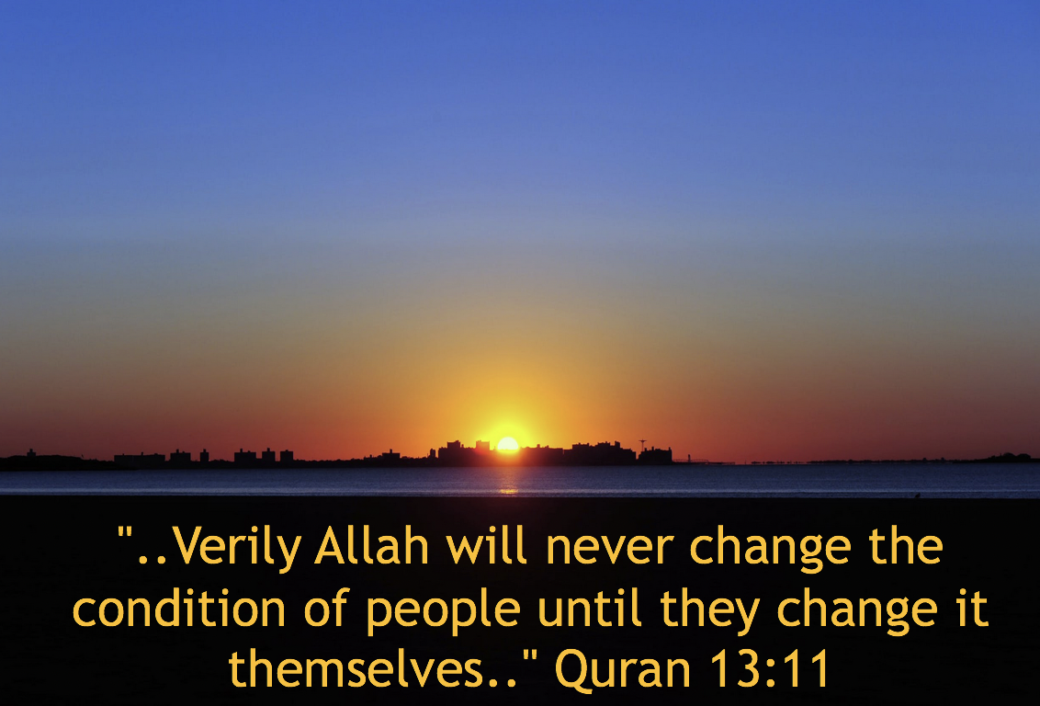

Be the first to comment